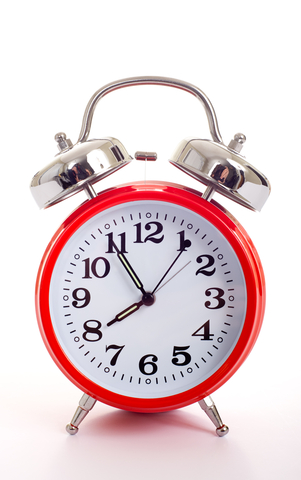Daylight Savings Time and How It Affects Drivers
 Twice a year, on Sunday March 9th and Sunday Nov 10th, we all begin our love/hate relationship with Daylight Savings time. Although the concept of seasonal time change was first proposed in 1895, DST was not implemented until the beginning of WWI, when Germany made the change in an effort to save fuel. Great Britain and the United states soon followed.
Twice a year, on Sunday March 9th and Sunday Nov 10th, we all begin our love/hate relationship with Daylight Savings time. Although the concept of seasonal time change was first proposed in 1895, DST was not implemented until the beginning of WWI, when Germany made the change in an effort to save fuel. Great Britain and the United states soon followed.
Daylight savings time causes an array of emotions. At times, you may feel excitement for the extra hour of daylight, as we come out of the cold, grey winter. Other times you may feel anger that not only do you lose an hour of sleep, but it’s now getting dark earlier and it happens all in one day!
Studies published show that adults 18+ should receive 7-9 hours of sleep, each day. The same studies show that over 30 million Americans are getting by on only 6-7 hours. This means 10% of the US population would be classified as “Sleep deprived”.
Symptoms of sleep deprivation can include: Fatigue, daytime sleepiness, mood swings and clumsiness.
Does that sound familiar? Remind you of anyone?

So what is the best way to prepare for the upcoming time change?
Here are some recommendations that may help you adjust:
- Stay Hydrated
- Eat high protein breakfast/lunches
- Have dinner centered around carbs
- 3 days leading up to the change, gradually move your clocks forward or backward 20 min
- Try your best to get the recommended 7-9 hours of sleep each day
As professional drivers, safety is your number one concern and something that never leaves your mind. A study published in 2000, which was a collaborative effort between a Jason Voorhees, a professor at Stanford University and Richard Allen, a researcher at John Hopkins research center, presented a 21 year study which found that in the spring (when an hour is lost) there was a significant increase in the number of accidents on the Monday following the time change, but also found an increase in accidents on the Sunday of the fall time change, leading them to believe sleep deprivation to be the cause.
As March 10th approaches, let’s play it safe and start preparing ourselves so that while on the road, we keep everyone safe! Spread the word…GET SOME SLEEP!








 Tired of searching for the perfect job? Needing a job with better pay? Let us do the work for you. Fill out our Pre-Qualifying form once, and instantly get matched to companies hiring near you.
Tired of searching for the perfect job? Needing a job with better pay? Let us do the work for you. Fill out our Pre-Qualifying form once, and instantly get matched to companies hiring near you. Truck Drivers Salary varies by driving experience and position held. A CDL Truck Drivers skillset, hauling expertise & endorsements possessed can influence the potential for higher pay. Pay as a CDL Company Driver will differ than that of an Owner Operator, or Team Driver. Currently a Truck Driver can expect to receive a Salary ranging between
Truck Drivers Salary varies by driving experience and position held. A CDL Truck Drivers skillset, hauling expertise & endorsements possessed can influence the potential for higher pay. Pay as a CDL Company Driver will differ than that of an Owner Operator, or Team Driver. Currently a Truck Driver can expect to receive a Salary ranging between